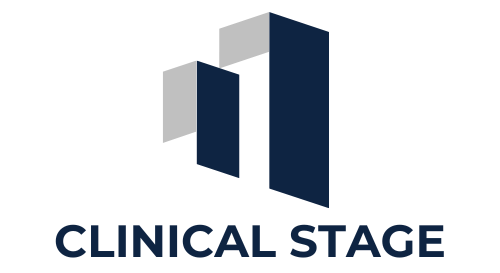Decentralized Clinical Trials: Opportunities and Challenges
The landscape of clinical trials is undergoing a significant transformation with the rise of decentralized clinical trials (DCTs). Unlike traditional clinical trials that require participants to visit centralized sites, DCTs leverage digital technologies and remote monitoring to conduct trials more flexibly and inclusively. This innovative approach brings numerous opportunities to enhance the efficiency, accessibility, and patient-centricity of clinical trials.
Decentralized clinical trials are particularly relevant in today's fast-paced and technology-driven world, offering the potential to overcome many of the logistical and geographical barriers that have traditionally hindered clinical research. By utilizing telemedicine, mobile health applications, and wearable devices, DCTs can facilitate broader participation, improve patient retention, and collect real-time data in more naturalistic settings.
However, with these opportunities come significant challenges. Implementing decentralized trials requires careful consideration of regulatory compliance, data security, and technological accessibility. Researchers must navigate the complexities of ensuring data integrity and protecting patient privacy while maintaining high standards of scientific rigor and ethical conduct.
In this blog, we will explore the various facets of decentralized clinical trials, examining the opportunities they present and the challenges they entail. We will delve into the technological innovations enabling DCTs, discuss strategies for overcoming obstacles, and highlight case studies that showcase the successful implementation of decentralized approaches. Join us as we navigate the future of clinical trials and uncover how decentralized methods are shaping the next generation of medical research.
What are Decentralized Clinical Trials?
Decentralized clinical trials (DCTs) represent a significant shift from traditional clinical trial methodologies, leveraging digital technologies to conduct research more flexibly and inclusively. Unlike conventional trials that centralize most activities at clinical sites, DCTs decentralize the trial process by utilizing remote monitoring, telemedicine, mobile health applications, and other digital tools. This approach aims to make clinical trials more accessible and patient-centric, ultimately improving participation rates and data quality.
Key Characteristics of Decentralized Clinical Trials
Remote Patient Monitoring:
- Remote monitoring involves using digital devices such as wearables, smartphones, and sensors to collect real-time health data from participants in their natural environments. This continuous data stream provides valuable insights into patient health and treatment effects without the need for frequent in-person visits.
Telemedicine and Virtual Visits:
- Telemedicine platforms enable researchers to conduct virtual consultations and follow-up visits, allowing participants to engage with the study from the comfort of their homes. This reduces the burden of travel and enhances convenience, especially for participants with mobility issues or those living in remote areas.
Electronic Consent (eConsent):
- The eConsent process uses digital platforms to inform participants about the study and obtain their consent electronically. eConsent systems can include multimedia elements like videos and interactive content to enhance understanding and compliance.
Mobile Health Applications:
- Mobile health (mHealth) apps are used to manage various aspects of the clinical trial, such as scheduling appointments, sending medication reminders, collecting patient-reported outcomes, and providing educational materials. These apps enhance participant engagement and adherence to the study protocol.
Direct-to-Patient Drug Delivery: In DCTs, investigational products and supplies can be shipped directly to participants’ homes, reducing the need for site visits and ensuring timely access to study medications.
Differences Between Decentralized and Traditional Clinical Trials
- Location of Activities:
- Traditional clinical trials centralize activities at clinical sites, requiring participants to travel for visits, treatments, and data collection. In contrast, DCTs conduct many of these activities remotely, leveraging digital technologies to bridge the gap.
- Participant Convenience:
- DCTs prioritize participant convenience by reducing the need for travel and allowing participants to engage from their homes. This approach can lead to higher recruitment and retention rates, as it lowers the burden on participants.
- Data Collection:
- Traditional trials rely heavily on site visits for data collection, whereas DCTs use digital devices and remote monitoring to gather continuous data. This real-time data collection provides a more comprehensive view of participants’ health and treatment responses.
- Flexibility:
- DCTs offer greater flexibility in trial design and implementation, allowing for adaptive protocols that can be adjusted based on real-time data. This adaptability can enhance the efficiency and responsiveness of clinical trials.
Examples of Decentralized Clinical Trial Models
- Hybrid Trials:
- Hybrid trials combine elements of both decentralized and traditional models, offering participants the option to choose between remote and in-person visits. This flexibility accommodates different participant preferences and logistical needs.
- Fully Decentralized Trials:
- Fully decentralized trials conduct all trial activities remotely, from recruitment and consent to monitoring and data collection. These trials rely entirely on digital technologies and remote interactions.
- Decentralized Elements within Traditional Trials:
- Some traditional trials incorporate decentralized elements, such as remote monitoring or telemedicine visits, to enhance participant convenience and data collection without fully transitioning to a decentralized model.
Decentralized clinical trials are transforming the way clinical research is conducted, offering numerous benefits in terms of accessibility, convenience, and data quality. However, implementing DCTs also presents unique challenges that must be carefully addressed to ensure success. In the following sections, we will explore the opportunities and challenges associated with decentralized clinical trials, highlighting strategies for overcoming obstacles and maximizing the potential of this innovative approach.
Opportunities in Decentralized Clinical Trials
Decentralized clinical trials (DCTs) present numerous opportunities that can transform the landscape of clinical research. By leveraging digital technologies and remote methodologies, DCTs offer several key benefits that can enhance the efficiency, inclusivity, and overall success of clinical trials.
Improved Patient Recruitment and Retention
One of the most significant opportunities in DCTs is the potential for improved patient recruitment and retention:
- Broader Geographic Reach: By removing the need for participants to travel to clinical sites, DCTs can reach a more geographically diverse population. This inclusivity allows researchers to enroll participants from rural and underserved areas who might otherwise be unable to participate.
- Reduced Burden on Participants: The convenience of participating from home reduces the time, cost, and logistical burden on participants. This can lead to higher recruitment rates and improved retention, as participants are more likely to stay engaged throughout the study.
- Enhanced Accessibility: DCTs can include populations that have historically been underrepresented in clinical trials, such as elderly individuals, people with mobility issues, and those with chronic illnesses. By making trials more accessible, DCTs can generate more representative and generalizable data.
Enhanced Patient Engagement
DCTs leverage digital tools to enhance patient engagement and adherence:
- Interactive Digital Platforms: Mobile health applications and online portals provide participants with easy access to study information, schedules, and communication with study coordinators. Interactive features, such as reminders and educational content, help keep participants informed and motivated.
- Real-Time Feedback: Wearable devices and remote monitoring tools enable the collection of real-time health data. This immediate feedback allows researchers to respond quickly to any issues, enhancing patient safety and engagement.
- Personalized Support: Digital tools can offer personalized support and tailored interventions based on individual participant needs and preferences. This personalization fosters a stronger connection between participants and the study, improving adherence and outcomes.
Increased Efficiency and Flexibility
DCTs offer significant opportunities to increase the efficiency and flexibility of clinical trials:
- Streamlined Processes: Digital technologies automate many trial processes, such as data collection, monitoring, and reporting. This automation reduces administrative burdens and streamlines operations, allowing trials to proceed more smoothly and efficiently.
- Adaptive Trial Designs: The flexibility of DCTs supports adaptive trial designs, where protocols can be adjusted based on interim data. This adaptability can optimize resource utilization, enhance trial responsiveness, and improve the likelihood of achieving meaningful results.
- Cost Savings: By reducing the need for physical sites and in-person visits, DCTs can lower operational costs. These savings can be redirected to other critical areas, such as expanding participant recruitment or conducting additional analyses.
Cost Savings
DCTs can lead to significant cost savings, which can be redirected to other critical areas of research:
- Reduced Overhead Costs: Eliminating the need for physical sites and related infrastructure can significantly lower overhead costs. These savings can be substantial, especially in large-scale trials.
- Optimized Resource Allocation: Savings from reduced travel, logistics, and site management can be reinvested into the trial, allowing for the inclusion of more participants, longer follow-up periods, or additional data analyses.
- Faster Recruitment and Shorter Timelines: The efficiency and convenience of DCTs can lead to faster recruitment and shorter trial timelines, further reducing costs and accelerating the time to market for new treatments.
Real-World Data Collection
DCTs enable the collection of real-world data, providing a more comprehensive understanding of treatment effects:
- Naturalistic Settings: Participants in DCTs often engage in the trial from their everyday environments, providing data that reflects real-world conditions. This can enhance the external validity and applicability of trial results.
- Continuous Monitoring: Wearable devices and remote sensors facilitate continuous health monitoring, capturing detailed and dynamic data that might be missed in periodic site visits. This comprehensive data collection can provide deeper insights into treatment efficacy and safety.
- Longitudinal Data: The convenience of remote participation supports longer follow-up periods, allowing for the collection of longitudinal data that can reveal long-term treatment effects and outcomes.
Case Studies and Success Stories
Several notable case studies highlight the successful implementation of DCTs:
- The CHIEF-HF Mobile Study: Conducted by Janssen Pharmaceuticals, this fully decentralized trial assessed the impact of a heart failure treatment using mobile health technologies. The study demonstrated the feasibility and effectiveness of remote patient monitoring and engagement.
- The VERKKO Study: Sponsored by Pfizer, the VERKKO study utilized a virtual trial model to investigate the efficacy of a smoking cessation treatment. The study leveraged digital tools for recruitment, eConsent, and data collection, showcasing the potential of DCTs to reach and engage participants remotely.
Special Example: Notable Labs
Notable Labs is pioneering decentralized clinical trials through its Predictive Precision Medicine Platform (PPMP), which uses AI and machine learning to predict patient responses to cancer treatments. This platform enhances trial efficiency by identifying patients likely to respond to specific therapies, thereby reducing costs and improving outcomes. PPMP has demonstrated high accuracy in predicting treatment responses in various hematological malignancies, making clinical trials more effective and accessible. This approach supports remote monitoring and management of patient data, addressing logistical challenges and enabling more patient-friendly research models.
Decentralized clinical trials offer numerous opportunities to enhance the efficiency, accessibility, and patient-centricity of clinical research. However, realizing these opportunities requires careful planning and consideration of the challenges inherent in decentralized approaches. In the next section, we will explore the challenges associated with DCTs and discuss strategies for overcoming these obstacles to maximize the potential of this innovative trial model.
Technological Innovations Enabling DCTs
The rise of decentralized clinical trials (DCTs) has been made possible by a suite of technological innovations that facilitate remote participation, data collection, and patient engagement. These technologies not only enhance the efficiency and flexibility of clinical trials but also improve the patient experience and data quality. In this section, we will explore the key technological innovations that are enabling DCTs and driving their adoption.
Telemedicine and Virtual Visits
Telemedicine platforms play a crucial role in DCTs by enabling remote consultations and follow-up visits:
- Virtual Consultations: Telemedicine allows participants to engage with healthcare providers and study coordinators from their homes. Video calls, secure messaging, and virtual check-ins ensure continuous communication and support without the need for in-person visits.
- Remote Physical Exams: Advances in telemedicine technology enable remote physical exams using connected devices, such as digital stethoscopes and otoscopes, that transmit data to healthcare providers in real time.
Wearable Devices and Remote Monitoring
Wearable devices and remote monitoring tools are essential for continuous data collection in DCTs:
- Health Trackers: Devices like smartwatches and fitness trackers monitor vital signs, physical activity, sleep patterns, and other health metrics. This continuous data collection provides a comprehensive view of participants' health and treatment effects.
- Remote Sensors: Specialized sensors can monitor specific health parameters, such as glucose levels, heart rate variability, and respiratory function. These devices enable real-time monitoring and early detection of potential issues.
Mobile Health Applications
Mobile health (mHealth) applications enhance participant engagement and streamline trial management:
- Patient Engagement: mHealth apps provide participants with easy access to study information, reminders, and educational materials. Interactive features and gamification elements can boost engagement and adherence.
- Data Collection: Participants can use mHealth apps to report symptoms, complete questionnaires, and log medication adherence. These self-reported data complement the continuous monitoring provided by wearable devices.
- Communication: mHealth apps facilitate secure communication between participants and study coordinators, allowing for timely support and troubleshooting.
Electronic Consent (eConsent)
Electronic consent platforms simplify and enhance the informed consent process:
- Interactive Content: eConsent systems use multimedia elements, such as videos and interactive graphics, to explain the study's purpose, procedures, risks, and benefits. This approach improves participant understanding and compliance.
- Convenience: Participants can review and sign consent documents electronically, reducing the need for in-person visits and paperwork. eConsent systems also allow for easy updates and re-consenting as needed.
Data Management and Analytics Platforms
Advanced data management and analytics platforms support the efficient handling and analysis of large datasets generated in DCTs:
- Data Integration: These platforms integrate data from various sources, including wearable devices, mHealth apps, EHRs, and remote sensors, providing a unified view of participant health.
- Real-Time Analytics: AI and machine learning algorithms analyze data in real time, identifying trends, anomalies, and potential safety issues. This real-time analysis supports adaptive trial designs and timely decision-making.
- Secure Data Storage: Robust security measures, including encryption and blockchain technology, ensure the privacy and integrity of participant data, complying with regulatory standards such as GDPR and HIPAA.
Direct-to-Patient Drug Delivery
Innovative logistics solutions facilitate the direct delivery of investigational products to participants' homes:
- Home Delivery Services: Specialized courier services handle the delivery of study medications, ensuring proper storage conditions and timely delivery. This approach eliminates the need for participants to visit clinical sites to receive treatments.
- Patient Support: Delivery services often include support for medication administration and adherence, such as instructional materials, virtual training sessions, and helplines.
Artificial Intelligence and Machine Learning
AI and machine learning enhance various aspects of DCTs, from patient recruitment to data analysis:
- Predictive Modeling: AI algorithms predict patient eligibility, optimize recruitment strategies, and forecast trial outcomes based on historical data and real-time inputs.
- Personalized Interventions: Machine learning models analyze individual participant data to tailor interventions and support, improving adherence and outcomes.
- Automated Monitoring: AI-driven tools continuously monitor participant data for signs of adverse events or non-compliance, enabling proactive interventions and ensuring participant safety.
Blockchain Technology
Blockchain technology ensures the transparency and security of clinical trial data:
- Immutable Records: Blockchain creates a tamper-proof record of all trial activities, including data collection, consent, and monitoring. This enhances data integrity and trust.
- Decentralized Storage: Distributed ledger technology ensures that trial data is securely stored across multiple nodes, reducing the risk of data loss or breaches.
Technological innovations are at the heart of the decentralized clinical trial model, providing the tools and platforms necessary to conduct trials more efficiently and inclusively. However, implementing these technologies also presents challenges that must be addressed to fully realize the potential of DCTs. In the next section, we will explore the challenges associated with decentralized clinical trials and discuss strategies for overcoming these obstacles to maximize the benefits of this innovative approach.
Challenges in Decentralized Clinical Trials
While decentralized clinical trials (DCTs) offer numerous benefits, they also present several challenges that need to be addressed to ensure their successful implementation. These challenges span regulatory, technological, operational, and ethical domains, requiring careful planning and innovative solutions.
Regulatory and Compliance Issues
Navigating different regulatory environments across regions is a significant challenge in DCTs:
- Varying Regulations: Each country has its own regulatory framework for clinical trials, and these can vary widely. Ensuring compliance with multiple sets of regulations can be complex and time-consuming.
- Approval Processes: Obtaining regulatory approval for decentralized components, such as telemedicine and remote monitoring, may require additional documentation and justification, potentially delaying trial initiation.
- Data Privacy and Security: Ensuring compliance with data protection regulations like GDPR (Europe) and HIPAA (USA) is critical. Protecting patient data in a decentralized model involves robust encryption, secure data storage, and clear data access protocols.
Technological Barriers
Implementing and maintaining the necessary technology for DCTs can be challenging:
- Digital Literacy: Not all participants may be comfortable using digital tools, such as wearable devices or mobile health apps. Ensuring that participants understand and can effectively use these technologies is crucial for data integrity and participant retention.
- Connectivity Issues: Reliable internet access is essential for telemedicine visits, remote monitoring, and data transmission. Participants in rural or underserved areas may face connectivity challenges, affecting their ability to fully participate.
- Integration of Data Sources: Integrating data from various sources, such as wearables, mHealth apps, and EHRs, can be complex. Ensuring that these systems work seamlessly together and provide accurate, real-time data is critical for trial success.
Operational and Logistical Challenges
Coordinating a decentralized trial requires robust operational planning and logistics:
- Supply Chain Management: Direct-to-patient delivery of investigational products requires efficient logistics to ensure timely and proper delivery. This includes managing storage conditions, tracking shipments, and handling returns if necessary.
- Training and Support: Researchers, coordinators, and participants need adequate training on the use of digital tools and protocols. Providing ongoing technical support is essential to address any issues that arise during the trial.
- Consistency and Quality Control: Ensuring consistent protocol adherence and data quality across multiple decentralized sites can be challenging. Robust monitoring and quality control measures are necessary to maintain trial integrity.
Ethical Considerations
Maintaining ethical standards in DCTs involves addressing several key issues:
- Informed Consent: Ensuring that participants fully understand the study and provide informed consent is more challenging in a remote setting. eConsent platforms must be designed to enhance comprehension and allow for questions and clarifications.
- Participant Safety: Remote monitoring must effectively detect adverse events and provide timely interventions. Ensuring participant safety without the physical presence of clinical staff requires reliable monitoring systems and clear communication channels.
- Equity and Access: Ensuring equitable access to DCTs is critical. Participants from diverse backgrounds, including those in underserved communities, must have the opportunity to participate. Addressing barriers such as digital literacy and connectivity is essential to achieving this goal.
Strategies for Overcoming Challenges
To maximize the potential of DCTs, researchers and sponsors can adopt several strategies to overcome these challenges:
- Regulatory Collaboration: Engaging with regulatory bodies early in the trial design process can help navigate complex regulatory environments. Collaboration and open communication with regulators can facilitate smoother approval processes.
- Participant Education and Support: Providing comprehensive education and support for participants is crucial. This includes user-friendly guides, instructional videos, and dedicated support lines to help participants navigate digital tools and protocols.
- Technological Solutions: Investing in robust and user-friendly technology is essential. Ensuring that platforms are intuitive and accessible, and that they integrate seamlessly with other data sources, will enhance the overall trial experience.
- Robust Monitoring Systems: Implementing advanced monitoring systems that provide real-time data and alerts can ensure participant safety and data integrity. Regular quality checks and audits can help maintain high standards across decentralized sites.
- Ethical Frameworks: Developing and adhering to strong ethical frameworks that prioritize participant rights, safety, and privacy is essential. This includes ensuring that informed consent processes are thorough and that participant data is protected.
Case Studies and Success Stories
Several successful DCTs provide valuable insights into overcoming these challenges:
- The REMOTE Trial by Pfizer: One of the first fully decentralized clinical trials, the REMOTE trial demonstrated the feasibility of using telemedicine and digital tools for participant recruitment, consent, and data collection. Despite initial challenges, the trial highlighted the potential for broader adoption of DCTs.
- The Covance Virtual Trials Platform: Covance implemented a virtual trials platform that integrates telemedicine, remote monitoring, and direct-to-patient drug delivery. The platform's success in multiple studies showcases the importance of investing in comprehensive digital solutions.
Future Directions and Innovations
Looking ahead, several innovations are poised to further enhance the feasibility and effectiveness of DCTs:
- Advanced AI and Machine Learning: These technologies will continue to improve patient recruitment, predictive analytics, and real-time data monitoring, making DCTs more efficient and adaptive.
- Blockchain for Data Security: Blockchain technology can provide enhanced data security and transparency, ensuring that trial data is immutable and traceable, thereby increasing trust in DCTs.
- Global Regulatory Harmonization: Efforts to harmonize regulatory requirements across regions will facilitate smoother and faster approval processes for decentralized components, encouraging broader adoption.
Future Prospects and Trends
As decentralized clinical trials (DCTs) continue to gain traction, several emerging trends and future prospects are poised to shape the landscape of clinical research. These advancements promise to further enhance the efficiency, inclusivity, and overall impact of DCTs, driving innovation in the field and improving patient outcomes.
1. Hybrid Trial Models
One of the most promising trends in clinical research is the adoption of hybrid trial models, which combine elements of both decentralized and traditional clinical trials:
- Flexibility and Convenience: Hybrid trials offer the flexibility to conduct certain activities remotely while maintaining the option for in-person visits when necessary. This approach accommodates diverse participant needs and preferences, enhancing recruitment and retention rates.
- Optimized Data Collection: By integrating remote monitoring with periodic site visits, hybrid models can optimize data collection, ensuring comprehensive and high-quality data while minimizing the burden on participants.
2. Increased Adoption of AI and Machine Learning
Artificial intelligence (AI) and machine learning (ML) are set to play a central role in the future of DCTs:
- Enhanced Predictive Analytics: AI algorithms can analyze vast datasets to predict patient eligibility, optimize recruitment strategies, and forecast trial outcomes. These capabilities can significantly improve trial design and efficiency.
- Real-Time Data Monitoring: ML models can continuously monitor real-time data from wearables and remote sensors, detecting patterns and anomalies that may indicate adverse events or treatment efficacy. This real-time analysis supports adaptive trial designs and timely interventions.
3. Expansion of Wearable Technology and IoT Devices
The use of wearable technology and Internet of Things (IoT) devices will continue to expand, providing more detailed and continuous data on participant health:
- Advanced Health Monitoring: Future wearables will offer more sophisticated monitoring capabilities, tracking a wider range of health metrics such as blood glucose levels, respiratory rate, and biomarkers for various conditions.
- Seamless Integration: The seamless integration of data from multiple wearable devices and IoT sensors will provide a holistic view of participant health, enhancing the accuracy and depth of trial data.
4. Evolution of Regulatory Frameworks
Regulatory frameworks will evolve to better accommodate the unique aspects of decentralized clinical trials:
- Harmonization of Standards: Efforts to harmonize regulatory standards across different regions will facilitate smoother approval processes for DCTs, reducing delays and complexity.
- Guidance on Digital Tools: Regulatory agencies will provide clearer guidance on the use of digital tools and remote methodologies in clinical trials, ensuring that DCTs meet the same rigorous standards as traditional trials.
5. Patient-Centric Approaches
The future of clinical trials will increasingly prioritize patient-centric approaches, ensuring that the needs and preferences of participants are central to trial design and execution:
- Personalized Support: Digital health platforms will offer more personalized support and interventions, tailored to individual participant needs and preferences. This personalized approach can improve engagement and adherence.
- Enhanced Communication: Advanced communication tools will facilitate better interaction between participants and study coordinators, providing real-time support and feedback.
6. Blockchain Technology for Data Integrity
Blockchain technology will play a crucial role in ensuring the integrity and transparency of clinical trial data:
- Secure Data Management: Blockchain provides a decentralized and immutable ledger for recording all trial activities, from data collection to consent. This enhances data security and trust in the trial process.
- Transparent Auditing: The use of blockchain can facilitate transparent auditing and verification of trial data, ensuring compliance with regulatory requirements and ethical standards.
7. Global Collaboration and Data Sharing
Increased global collaboration and data sharing will enhance the efficiency and impact of clinical trials:
- Collaborative Networks: International research networks will enable the sharing of best practices, data, and resources, accelerating the development of new treatments.
- Open Data Initiatives: Open data initiatives will promote the sharing of anonymized trial data, fostering innovation and enabling secondary analyses that can generate new insights.
8. Integration of Real-World Evidence (RWE)
The integration of real-world evidence (RWE) will become more sophisticated, providing valuable insights into treatment effectiveness and safety outside of controlled trial environments:
- Comprehensive Data Sources: Advanced data integration platforms will combine data from EHRs, patient registries, and wearable devices, providing a richer and more comprehensive dataset.
- Regulatory Acceptance: As regulatory agencies increasingly recognize the value of RWE, its use in supporting regulatory submissions and approvals will become more widespread.
Decentralized clinical trials offer transformative potential for clinical research, providing opportunities to enhance efficiency, accessibility, and patient engagement. However, addressing the challenges associated with DCTs is critical for their successful implementation. By adopting innovative technologies, collaborating with regulatory bodies, and prioritizing participant education and support, the clinical trial industry can overcome these obstacles and fully realize the benefits of decentralized models.
As the landscape of clinical research continues to evolve, decentralized clinical trials will play an increasingly important role in advancing medical knowledge and improving patient outcomes. By embracing these innovations and addressing the associated challenges, researchers and sponsors can pave the way for a more inclusive and effective future in clinical trials.










